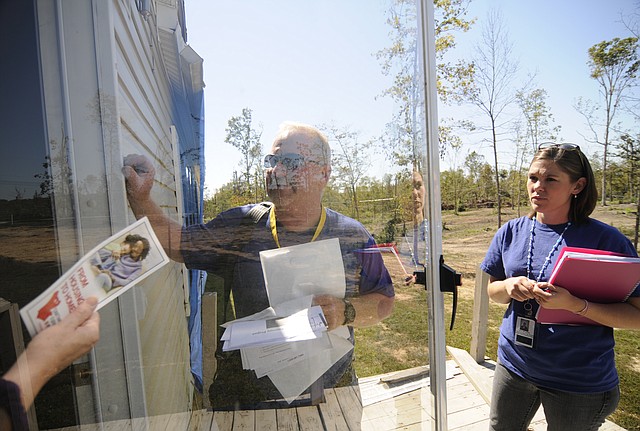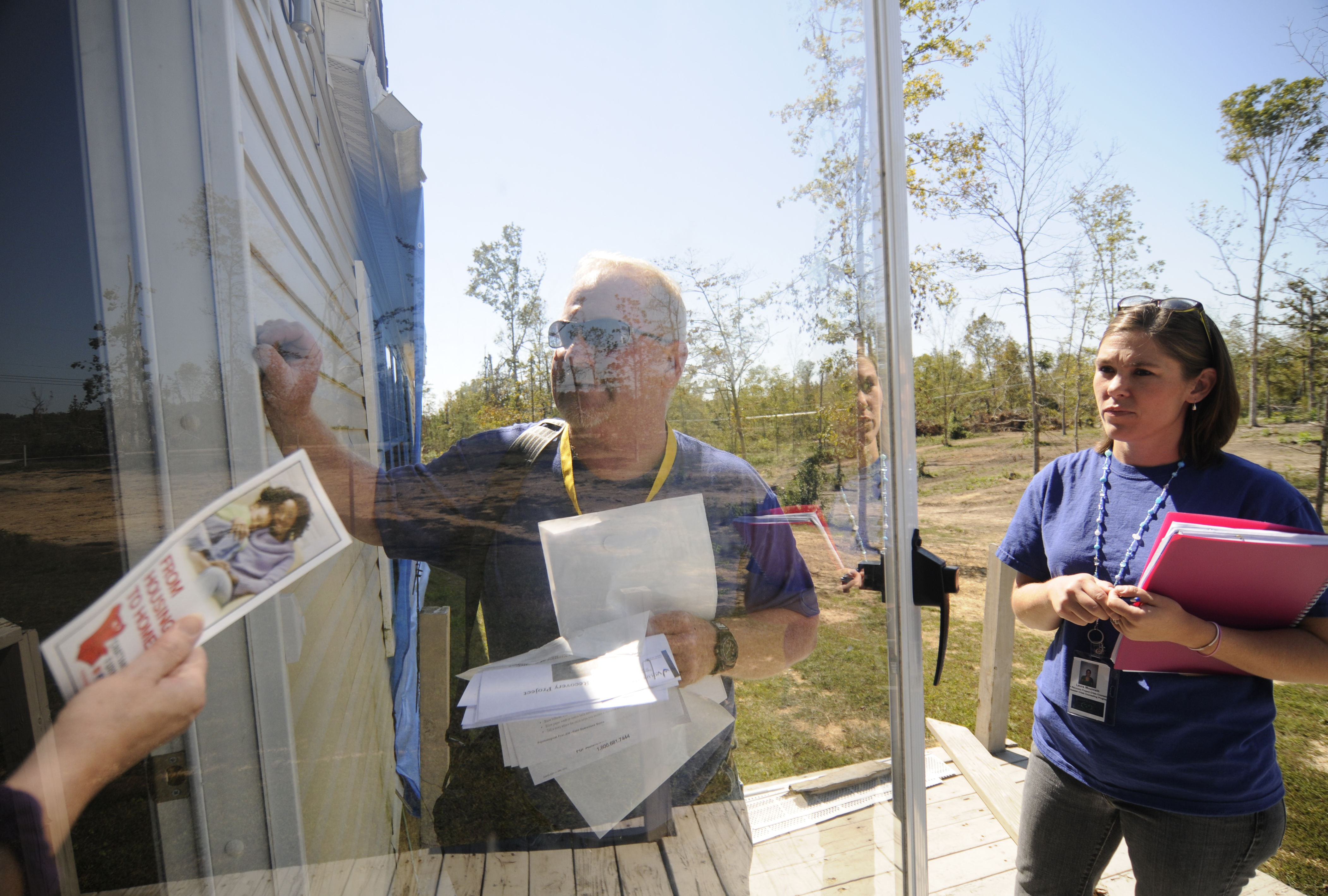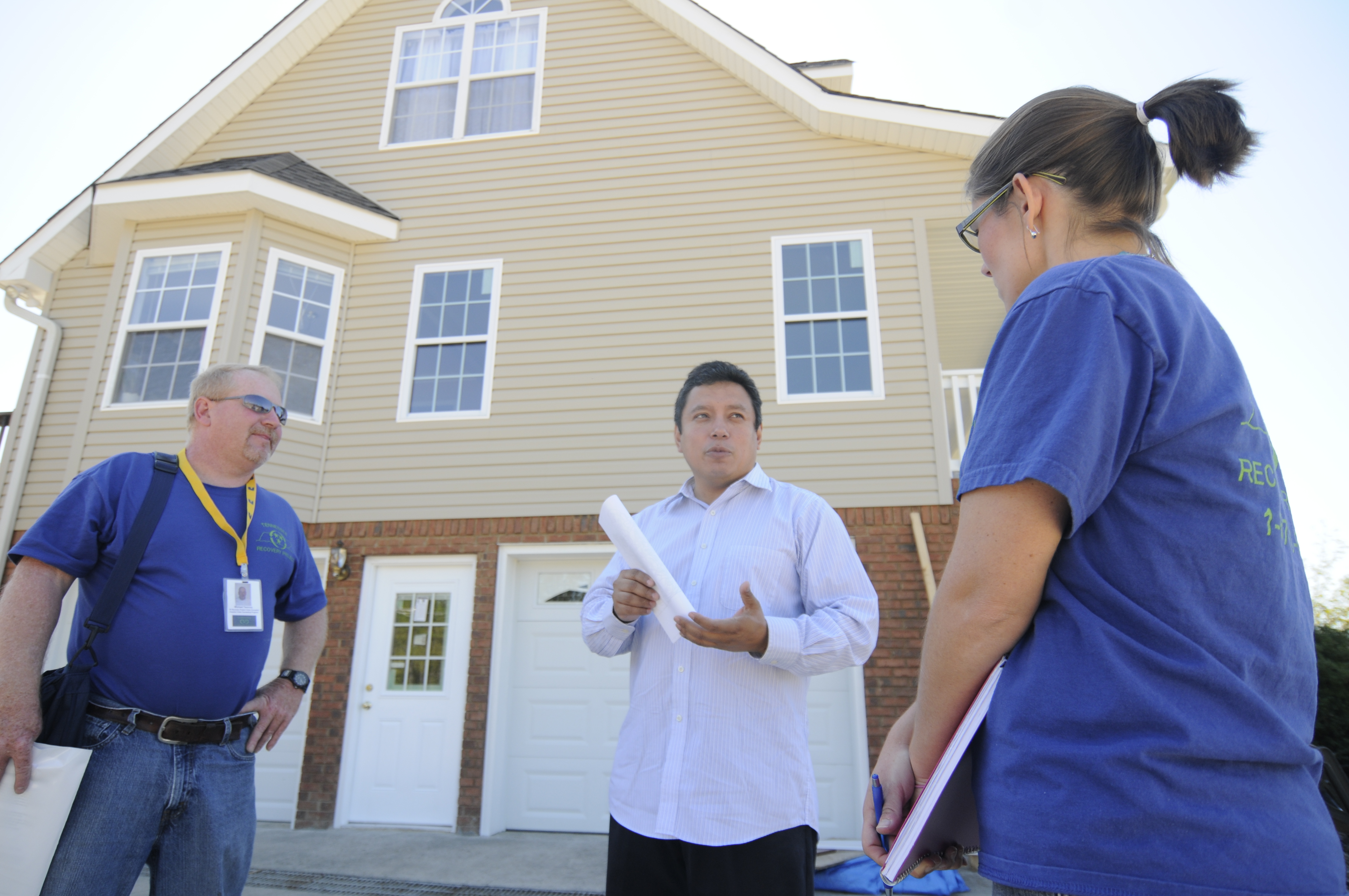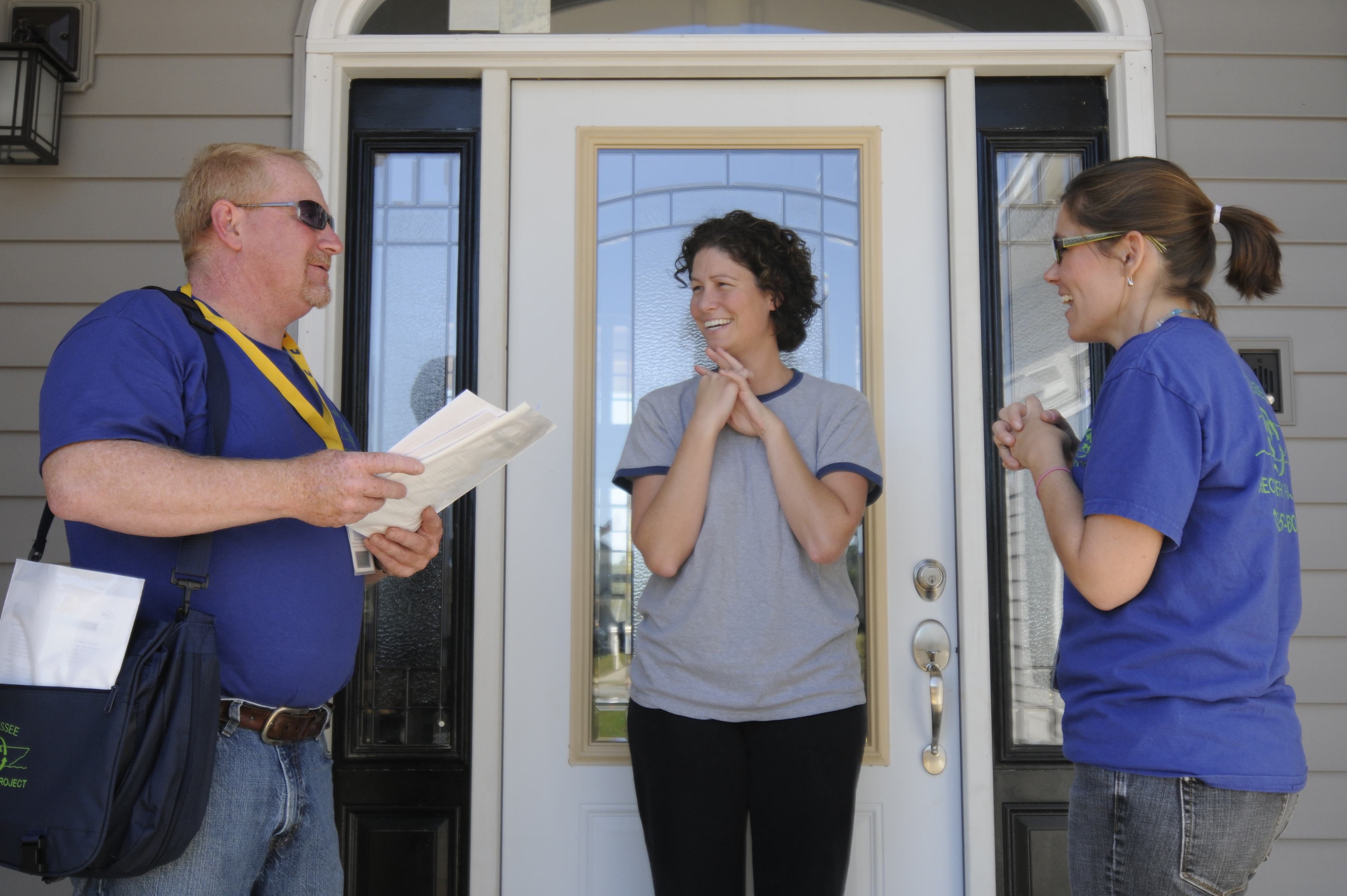Months after the April 27 Tornadoes, emotional fallout lingers
Friday, January 1, 1904
TO GET HELPIn Southeast Tennessee, call 1-800-704-2651In Northeast Alabama, call 1-800-639-REBOUNDIn Northwest Georgia, call 706-861-3387, 706-638-5591 or 706-657-7501WHAT'S AVAILABLE?Individual crisis counseling to help survivors understand their reactions, improve coping strategies, review their options and connect with other help groupsGroup crisis counseling led by trained counselorsCommunity networking and supportAssessment, referral and resource linkingSource: Tennessee Recovery Network
When Angela Heisig's husband saw a tornado bearing down on their brand-new Apison home, the couple scooped up their three children and ran to the basement stairs.
They were almost too late. Angela heard the wind screeching. And even as they ran, the windows began shattering around them.
But the Heisigs and their children -- ages 6, 4 and 1 -- made it safely to cover.
Four and a half months after that record-breaking day of tornadoes killed 80 in the region and damaged or destroyed more than 1,500 homes, the young mother still cries when she tells the story.
"I'm sorry," she said, wiping away tears. "No, we're not over it. We used to love storms. Now we pray and sing through them. It's our mantra. But it gets a little better each time."
Last week, she and several other Apison residents stood on their porches and told their stories to Laura Mountain and Mike Twomey, outreach counselors for the Tennessee Recovery Project.
The program is funded by the Federal Emergency Management Agency and aimed at helping tornado survivors rebuild their lives -- tangibly and emotionally. It began as a 60-day pilot, but last month was extended for nine more months.
"Everybody's healing is different," Mountain said, noting that coping needs from a traumatic experience such as a natural disaster often manifest several months or a year after the event.
The door-to-door traveling therapy effort began in May, about a month after the killer tornadoes raked the region.
But the idea behind the program was born a year earlier, after catastrophic flooding in Nashville and Middle Tennessee, said Delores Kinnaird, the Tennessee Recovery Project coordinator for Volunteer Behavioral Health.
Six months after the floodwaters dried up around Nashville, authorities tallied eight survivors who later had committed suicide. They said 22 others attempted suicide and two more tried to kill someone else.
The violence was traced to the stress of the flooding, Kinnaird said.
To prevent a repeat of those dire numbers here, a 60-day pilot assigned 14 counselors in seven part-time teams to canvass tornado-torn neighborhoods in Hamilton, Bradley, McMinn, Monroe, Rhea and Bledsoe counties.
Armed with dog treats, insect repellent, brochures and a carload of concern, they knocked on doors, shook hands, struck up conversations and connected people in need to groups that could help.
And they found nerves as shredded as the roofs and trees.
"What we hear a lot is that people are just 'so tired,'" Twomey said.
"And a lot of people spend so much time taking care of tangible items [like roofs and replacement furniture] that they ignore their emotional well-being," Mountain said.
It's a normal reaction, but a dangerous one, Kinnaird said.
"Adults often give themselves a timeframe, saying, 'In six months I'll have this done or that done.' But after something like this it's often just not possible. Then you see them getting depressed or giving up," she said.
Children can be doubly affected -- feeling the slap of their own fears and picking up on the concerns of their parents.
So the $300,000 pilot has become a full-on operation with funding from FEMA. Kinnaird said the extension will allow the addition of several more teams to work through May 13, 2012.
The counseling service is anonymous. Crisis counselors deliver services in the community, and no records or case files are kept. The counselors do not classify, label or diagnose people.
In addition to the door-to-door work, counselors will try to strengthen storm-ravaged neighborhoods by setting up support groups at churches, schools or civic centers.
"We will also be going into classrooms, and we'll meet with students alongside the guidance counselors," Mountain said.
The counselors will offer fliers, show videos and help students and people in support groups create plans to prepare and protect themselves from future storms.
"When you lose control, you panic," Kinnaird said. "And when people feel better prepared, they will feel more in control."
Heisig and a neighbor up the road, Richard Mendoza, each volunteered in their stories that preparation has become more important to them.
"We bought a generator," said Mendoza, standing outside his repaired home. "We're ready for the next storm, now."
Heisig said her family now has a weather radio.
"And we're taking steps now on reoutfitting our basement safe room," she said.



